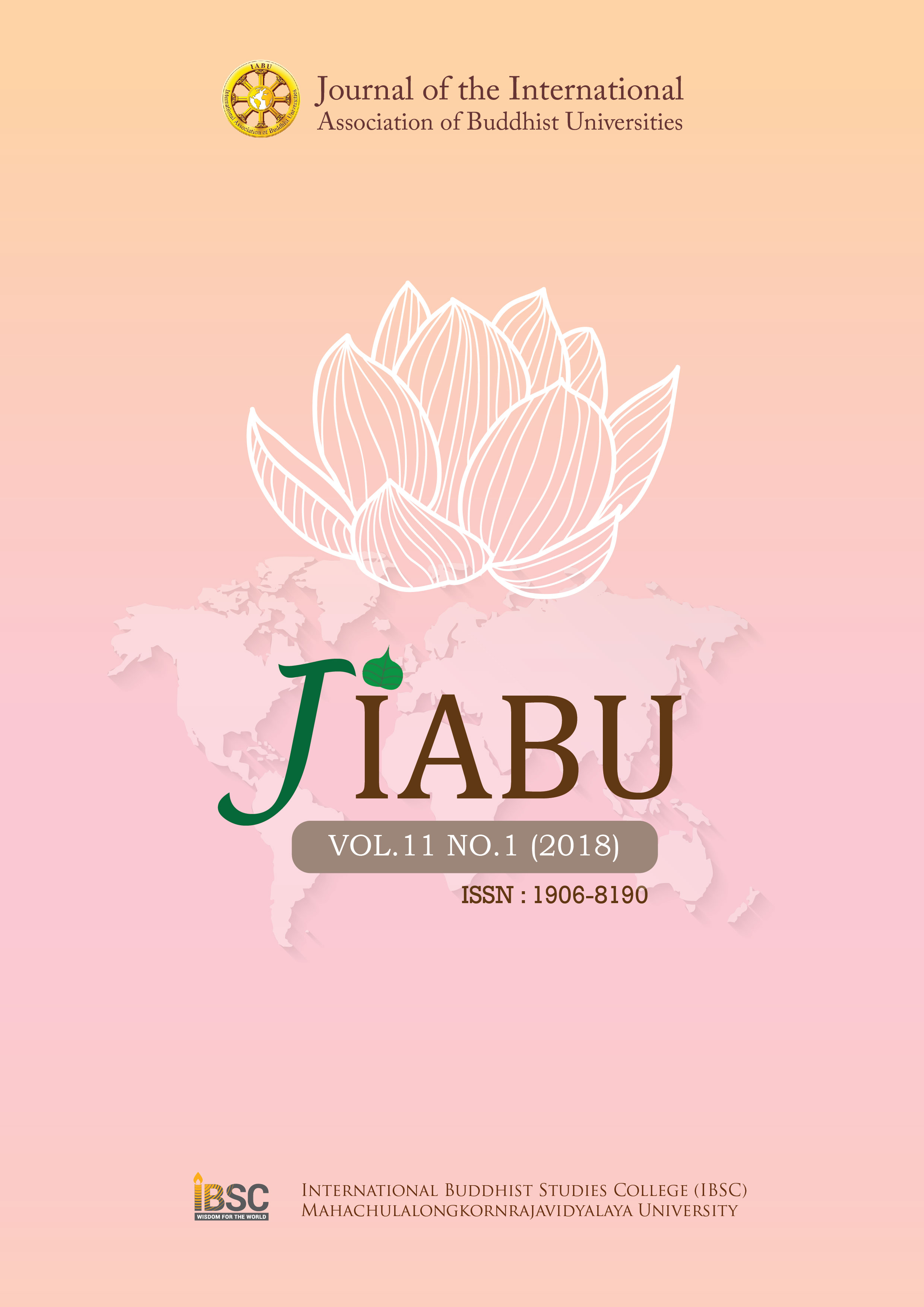Truc Lam Zen School In Vietnam: an Analytical Study of the Way of Practice
Main Article Content
Abstract
This article aims, in general terms, to conduct qualitative research and express
the essence of Truc Lam Zen teaching, which cuts right to the core of the matter and can
only be found by oneself, as the best answer itself is “practice”. One of the key points
of Vietnamese Zen Buddhism is an intuitive understanding. It leads one to break the ice of
ignorance and attain Buddhahood naturally. For the first objective, the author would like
to go back and take a deep look at the origin and development of Truc Lam Zen school to understand its past and present. As a result of this study, it was shown that the Truc Lam
Zen school has been offering a spiritual way for earnest meditators to reach the higher realm
of welfare and revive the golden period of Vietnamese Zen Buddhism for later generations,
thus contributing to the Buddhist foundation, making it more universal and thriving.
Article Details
Views and opinions expressed in the articles published by The Journal of the International Association of Buddhist Universities (JIABU), are of responsibility by such authors but not the editors and do not necessarily reflect those of the editors.
References
Society, 1995.
AnguttaNikāya (The Book of Gradual Saying), Oxford: Pāli Text Society, 1995.
Taisho Tripiṭaka, The Mahāyāna Vaipulya Sūtra of Total Retention, vol 09, no.275.
Alan W. Watts, The Spirit of Zen, (New York: Grove Press, 1958),
Dao, Sinh (tr), Tran Nhan Tong- A Biographical Study, (Ho Chi Minh city: Ho Chi Minh
city General Press)
B.K. Bagchi, M.A. Wenger, Electrophysiological Correlates of Some Yoga Exercises,
“Electroencephalography and Clinical Neurophysiology” 1957, no. 7,.
Bhadantācariya Buddhaghosa, Visuddhimagga: The Path of Purifi cation, tr. by Ñāṇamoli
Bhikkhu.
Giac, Nguyen (tr).Teachings and Poetry of the Vietnamese Zen Master Tue Trung Thuong
Si (1230-1291), Email: nguyengiac@yahoo.com -- California, 2007.
Hanh, Thich Nhat.All in One, One in All, The Nature of Interbeing, Taiwan: The Corporate
Body of the Buddha Educational Foundation reprinted and donated, 2007.
Institute of History, Studies on Vietnamese Society under the Ly and Tran Dynasties, (Ha
Noi: Social Sciences Press, 1981).
Kalupahana, David J. Reflection on the Relation on the Relation between Early Buddhim
and Zen in Buddhist Philosophy: A Historical Analysis, Honolulu: University Press
of Hawaii, 1976.
Le Ngoc Son, “A Study of the Zhulin Zen School during the Chen Dynasty in Vietnam,
(MA Thesis, Fo Guang University, 2007).
Nakamura, Hajime, A Process of the Origination of Buddhist Meditation in Connection
with the Life of the Buddha’. In Studies in Pali And Buddhism (A Homage Volume
to the Memory of Bhikkhu Jagdish Kashyap), 1979. ed. Dr A.K. Narain, Delhi:
B.R.Publishing Corp. Vetter Tilmann, The Ideas and Meditative Practices of Early
Buddhism, (Leiden: E.J.Brill, 1990).
Nalinaksha Dutt, Mahāyāna Buddhism, (India: Shantilal Jain at Shri Jainendra Press,
1978).
Nguyen Giac (tr), Teachings and Poetry of the Vietnamese Zen Master Tue Trung Thuong Si
(1230-1291), Song of Buddha Voice, Email: nguyengiac@yahoo.com -- California,
2007).
Shapiro, D.H. Zifferblatt, S.M. An Analysis of Variance Test for Normality, (Oxford
University: Biometrika Trust ), 1956.
P.A. Payutto, Buddhadhamma Expanded and Revised (abridged).
Record of the lamp’s Transmission from the Jingle Era, vol 28, (Taisho Tripitaka, vol 5,
no.2076), p.437, c19-20.
Venerable Uda Eriyagama Dhammajīva Maha Thero, (tr) Maha-Si Insight Meditation,
(Srilanka: Mitirigala Nissarana Vanaya), www.vipassana.com.
Vien Minh, Living in the Reality, (Vietnamese version), (HCM city: Phuong Dong Press,
2001).
Watts, Alan.Eastern Wisdom: Zen in the West & Meditations, The Alan Watts Foundation.
2009.
Weeraperuma, Susunaga, Nirvana, The Happiness, Meditations on Buddhist Issues, (India:
Shri Janinendra Press, 1987).
Wynne, Alexander, The Origin of Buddhist Meditation, (London: Routledge Taylor and
Francis group).
Xuan, Nguyen Thanh.Religions in Vietnam, Ha Noi: The Gioi Publishers, 2012.


